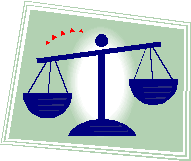Liberal Damage Rules Apply in FDCPA Suits
Sharp Thinking
Thinking
No. 64 Perspectives on Developments in the Law from The Sharp Law Firm, P.C. May 2012
Liberal Damage Rules Apply in FDCPA Suits
Third of three issues on the Fair Debt Collection Practices Act.
Statutory Damages, Class Action Provisions, Bona Fide Error Doctrine Are Unusual
As noted in the last two issues of Sharp Thinking, the Fair Debt Collection Practices Act (15 U.S.C. §§ 1692 et seq.) (“FDCPA”) contains numerous provisions which threaten liability for debt collectors in the collection of consumer debt. In this issue we address remedies for violations of that Act and affirmative defenses which can allow collectors to prevail despite a violation.
Numerous Remedies. Under § 1692l, the Federal Trade Commission (“FTC”) and certain other agencies are given certain administrative enforcement powers. Such administrative proceedings can lead to imposition of injunctions and significant civil penalties under the FTC Act, 15 U.S.C. §§ 41, 45(m), 53(b). However, the major form of enforcement of the FDCPA has been through its civil liability provisions, § 1692k. A private cause of action lies in federal court without regard to the amount in controversy, or in any other court of competent jurisdiction, if filed within one year from the date on which the violation occurred. § 1692k(d). Generally the case will be brought by the debtor, but that is not necessarily required. Where a person other than the debtor is covered by one of the substantive provisions, that person may be able to sue under § 1692k(a). A single violation of the act is sufficient to give rise to a lawsuit.
A collector who has failed to comply with the act generally will be held liable for any actual damage  sustained by the plaintiff as a result of such failure (§ 1692k(a)(1)) plus court costs and a reasonable attorney’s fee (§ 1692k(a)(3)) plus other relief varying with the circumstances. Attorney fees usually are assessed using the “lodestar” method common in other contexts. Gastineau v. Wright, 592 F.3d 747 (7th Cir. 2010). The attorney’s fees may be awarded to the prevailing plaintiff even if actual damages are not. An award of fees generally is regarded as mandatory if the plaintiff prevails on the merits. Schlacher v. Law Off. of Phillip J. Rotche & Assoc., 574 F.3d 852 (7th Cir. 2009). However, to be entitled to fees the plaintiff must prevail on the merits in some respect. Dechert v. Cadle & Co., 441 F.3d 474 (7th Cir. 2006).
sustained by the plaintiff as a result of such failure (§ 1692k(a)(1)) plus court costs and a reasonable attorney’s fee (§ 1692k(a)(3)) plus other relief varying with the circumstances. Attorney fees usually are assessed using the “lodestar” method common in other contexts. Gastineau v. Wright, 592 F.3d 747 (7th Cir. 2010). The attorney’s fees may be awarded to the prevailing plaintiff even if actual damages are not. An award of fees generally is regarded as mandatory if the plaintiff prevails on the merits. Schlacher v. Law Off. of Phillip J. Rotche & Assoc., 574 F.3d 852 (7th Cir. 2009). However, to be entitled to fees the plaintiff must prevail on the merits in some respect. Dechert v. Cadle & Co., 441 F.3d 474 (7th Cir. 2006).
If the case is brought by an individual, the court may award additional damages (often called “statutory damages”) not exceeding $1,000. § 1692k(a)(2)(A). The right to a jury trial applies to both  the actual and the statutory damages, if requested. Statutory damages are available with or without proof of actual damages. In determining the amount of statutory damages, a court is to consider, among other relevant factors, the frequency and persistence of noncompliance by the collector, the nature of such noncompliance, and the extent to which noncompliance was intentional. § 1692k(b)(1). Although the fact that the violation was innocuous will not thwart a judgment, it may be considered in mitigating liability. § 1692k(b)(1). The $1,000 in statutory damages permitted is per proceeding, not violation. The statutory damages have sometimes been characterized as punitive (Veach v. Sheeks, 316 F.3d 690, 692 (7th Cir. 2003)), although the $1,000-per-case rule diminishes the force of that characterization somewhat.
the actual and the statutory damages, if requested. Statutory damages are available with or without proof of actual damages. In determining the amount of statutory damages, a court is to consider, among other relevant factors, the frequency and persistence of noncompliance by the collector, the nature of such noncompliance, and the extent to which noncompliance was intentional. § 1692k(b)(1). Although the fact that the violation was innocuous will not thwart a judgment, it may be considered in mitigating liability. § 1692k(b)(1). The $1,000 in statutory damages permitted is per proceeding, not violation. The statutory damages have sometimes been characterized as punitive (Veach v. Sheeks, 316 F.3d 690, 692 (7th Cir. 2003)), although the $1,000-per-case rule diminishes the force of that characterization somewhat.
In class actions, the court may award the statutory damages to each named plaintiff and an amount for all other class members, without regard to a minimum individual recovery, not to exceed the lesser of $500,000 or 1% of the net worth of the debt collector. § 1692k(a)(2)(B). In Sanders v. Jackson, 209 F.3d 998 (7th Cir. 2000), our court of appeals determined that net worth for purposes of  this cap was book value net worth, excluding goodwill. Subject to such cap, in determining the amount of an award in a class action the court is to consider, among other things, the frequency and persistence of noncompliance by the debt collector, the nature of such noncompliance, the resources of the debt collector, the number of persons adversely affected, and the extent to which the debt collector’s noncompliance was intentional. § 1692k(b)(2). All class actions under the FDCPA are actions for money damages requiring notice to (and an opportunity to opt-out by) absent class members. Crawford v. Equifax Payment Services, Inc., 201 F.3d 877 (7th Cir. 2000).
this cap was book value net worth, excluding goodwill. Subject to such cap, in determining the amount of an award in a class action the court is to consider, among other things, the frequency and persistence of noncompliance by the debt collector, the nature of such noncompliance, the resources of the debt collector, the number of persons adversely affected, and the extent to which the debt collector’s noncompliance was intentional. § 1692k(b)(2). All class actions under the FDCPA are actions for money damages requiring notice to (and an opportunity to opt-out by) absent class members. Crawford v. Equifax Payment Services, Inc., 201 F.3d 877 (7th Cir. 2000).
“Bona Fide Error” Defense. FDCPA § 1692k(c) provides that a debt collector “may not be held liable in any civil action brought under this subchapter if the debt collector shows by a preponderance of evidence that the violation was not intentional and resulted from a bona fide error notwithstanding the maintenance of procedures reasonably adapted to avoid any such error.” Usually the successful defense  involves a clerical-type error or a lack of knowledge. See Ross v. RJM Acq. Funding LLC, 480 F.3d 493 (7th Cir. 2007). The defense does not apply for mistakes of law as to the act’s requirements. Jerman v. Carlisle, McNellie, Rini, Kramer & Ulrich, __ U.S. __, 130 S.Ct. 1605 (2010). Moreover, our circuit is fairly strict in requiring significant preventative procedures. See Ruth v. Triumph P’ships, 577 F.3d 790 (7th Cir. 2009); Seeger v. AFNI, Inc., 548 F.3d 1107 (7th Cir. 2008); but see Ross v. RJM, cited above.
involves a clerical-type error or a lack of knowledge. See Ross v. RJM Acq. Funding LLC, 480 F.3d 493 (7th Cir. 2007). The defense does not apply for mistakes of law as to the act’s requirements. Jerman v. Carlisle, McNellie, Rini, Kramer & Ulrich, __ U.S. __, 130 S.Ct. 1605 (2010). Moreover, our circuit is fairly strict in requiring significant preventative procedures. See Ruth v. Triumph P’ships, 577 F.3d 790 (7th Cir. 2009); Seeger v. AFNI, Inc., 548 F.3d 1107 (7th Cir. 2008); but see Ross v. RJM, cited above.
Reliance on FTC. The act provides that no provision of its civil-liability section (§ 1692k) “shall apply to any act done or omitted in good faith in conformity with any advisory opinion of the [FTC].” § 1692k(e). This provision has not been liberally applied. See Gulley v. Markoff & Krasny, 664 F.3d 1073 (7th Cir. 2011); Carter v. AMC, LLC, 645 F.3d 840 (7th Cir. 2011).
Attorney Fees For Defendants. Upon a finding that an action was brought in bad faith and for harassment, the court may award the defendant attorney’s fees reasonable in relation to the work expended and costs. § 1692k(a)(3). However, to recover under this provision defendant apparently must show that the entire suit, and not just a part of it, was brought in bad faith. Horkey v. J.V.D.B. & Assoc., 333 F.3d 769 (7th Cir. 2003). If the case was brought in federal court, sanctions may be available under Federal Rule of Civil Procedure 11 even if § 1692k(a)(3) is not met. Similarly, they presumably could be available under Illinois Supreme Court Rule 137 if a bad faith suit were brought in state court.
THE SHARP LAW FIRM, P.C.
1115 Harrison, P.O. Box 906, Mt. Vernon, IL 62864 • Telephone 618-242-0246 • Facsimile 618-242-1170
Business Transactions • Litigation • Financial Law • Problem Finances • Real Estate • Corporate • Commercial Disputes • Creditors’ Rights •
Arbitration • Employment Matters • Estate Planning • Probate
64
